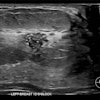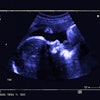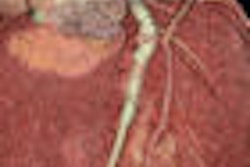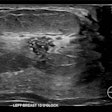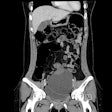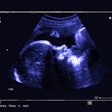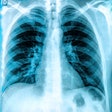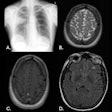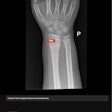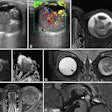
NEW YORK (Reuters Health), Jul 22 - The addition of chemotherapy to preoperative radiotherapy in patients with resectable rectal cancer improved local control, but did not increase long-term survival, according to a systematic review and meta-analysis by Belgian researchers.
Their study, published in the June 15 issue of the International Journal of Cancer, also found that chemoradiation therapy was associated with a moderate increase in acute toxicity compared with radiotherapy alone, although postoperative complications, such as leakage of anastomoses, were not worsened. Further, the researchers found that adding chemotherapy did not increase the sphincter preservation rate.
The investigators' trial of the benefit of preoperative chemoradiation therapy in resectable rectal cancer, the authors noted, "is based primarily on possible downsizing and downstaging of tumors close to the circumferential resection margin ... or the sphincter apparatual."
Dr. Wim Ceelen of the Ghent University Hospital, Ghent, Belgium, told Reuters Health that the researchers were surprised to find that overall survival was not improved regardless of whether radiation therapy or chemoradiation therapy is used and that, although chemoradiation therapy resulted in better local control and more pathological complete response, it did not translate into more sphincter-preserving resections.
Nonetheless, he said, "I would recommend chemoradiation therapy, and this is as a matter of fact the standard of care in most centers now."
The researchers selected 324 papers for full review and chose four randomized trials that compared preoperative radiotherapy with preoperative chemoradiation therapy in resectable stage II or III rectal cancer. All four studies used a biologically equivalent radiotherapy dose of at least 30 Gy. The primary outcome in three of these studies was the local recurrence rate at five years.
The rate of grade III or IV treatment-related toxicity was 14.9% in the 1,015 patients treated with chemoradiation therapy versus 5.1% in the 1,017 patients treated with radiation therapy alone (p = 0.002). The authors noted that chemotherapy-related toxicity appeared to be generally tolerable, as suggested by high compliance rates in the studies in question.
No differences in overall or disease-free survival were found and there was no difference found in the sphincter preservation rates.
One of the theories about that survival benefit, which has also been found in other trials, the authors write, "is the persistence of early, subclinical systemic disease present at diagnosis." Support for this hypothesis, the report continues, lies in the consistent distant metastatic disease rate (around 30% in both chemoradiation therapy and radiation therapy groups) in all four trials included in the meta-analysis.
By Scott Baltic
Int J Cancer 2009;124:2966-2972.
Last Updated: 2009-07-21 19:06:40 -0400 (Reuters Health)
Related Reading
Preoperative radiotherapy reduces rectal cancer recurrences, March 6, 2009
Rectal cancer survival improved with response to radiation therapy, February 24, 2009
Copyright © 2009 Reuters Limited. All rights reserved. Republication or redistribution of Reuters content, including by framing or similar means, is expressly prohibited without the prior written consent of Reuters. Reuters shall not be liable for any errors or delays in the content, or for any actions taken in reliance thereon. Reuters and the Reuters sphere logo are registered trademarks and trademarks of the Reuters group of companies around the world.
